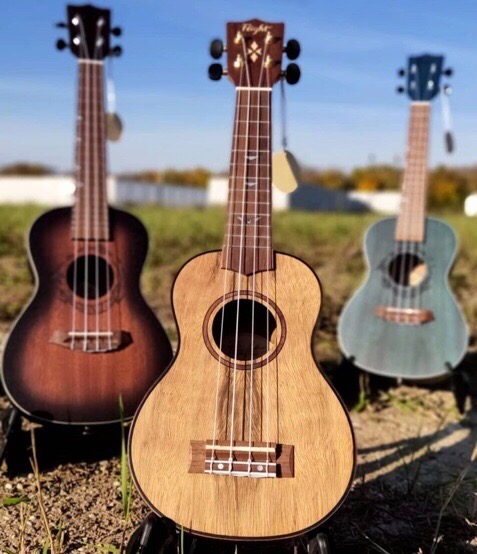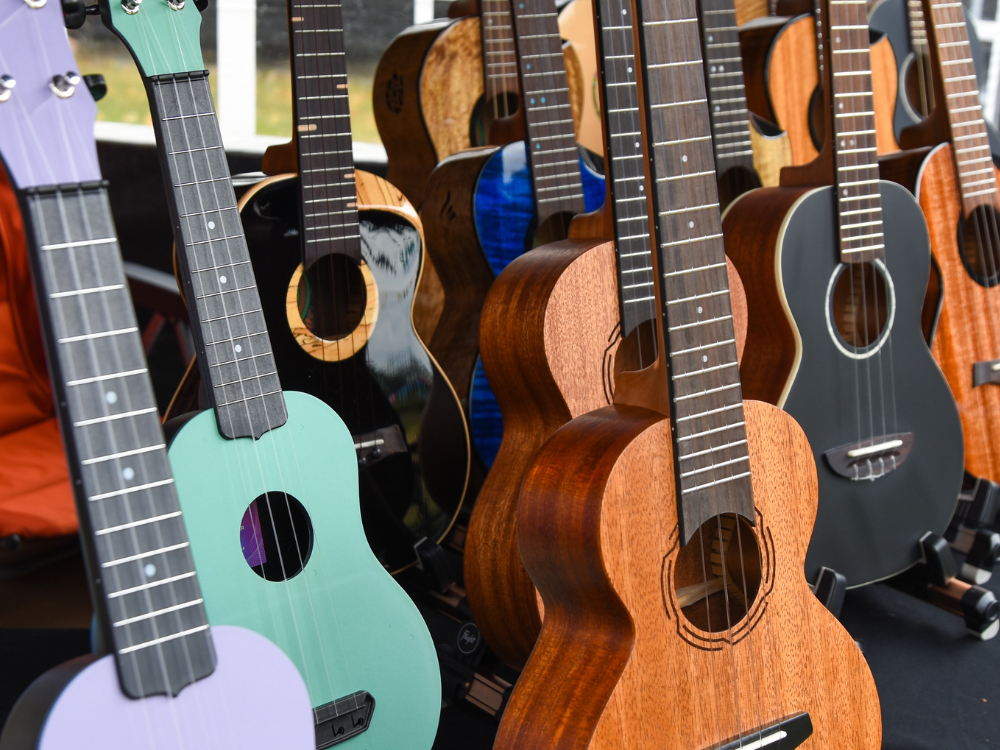Italian-born, Brighton-based singer-songwriter Julia Traser contemplates this notion on her debut album Perfect Timing, a…

Ukulele Sizes – Part 1
Ukulele sizes can be confusing for new players. We classify ukuleles by their scale length–the distance between the nut and the saddle of a ukulele. Ultimately, larger scale instruments offer more space between frets than smaller scale instruments. You can play any size of ukulele, but you may develop a preference for a particular size. Players with large hands may find larger scales easier to play; players smaller hands may find smaller scales easier to play. While there are other sizes, the four primary sizes of the ukulele are soprano, concert, tenor, and baritone.
The smallest of these four sizes is the soprano, which was the original size of the ukulele. The scale length of a soprano is around thirteen inches. Sopranos are known to be punchy and bright, and are exceptionally good for providing harmonic and rhythmic support. Most sopranos are tuned GCEA, but there are many alternative tunings including ADF♯B. Some people think the soprano is too small to play and is a toy—but that is untrue. The soprano is a legitimate instrument, and it is the ukulele that started it all.
Increasing in size, the next ukulele is the concert ukulele. Some experts think that the Martin taropatch, created in the 1910s, was the inspiriation for the concert ukulele. A taropatch has eight strings, and is slightly larger than a soprano ukulele. If you remove four of the eight strings on a taropatch, you end up with a concert ukulele. Some sources suggest that “concert” is used because the instrument shares the same tuning and pitch range as a soprano ukulele. If it were named “alto,” it would indicate that it has a lower range than a soprano, which is not true. The scale length of a concert ukulele is around fifteen inches. Concert ukuleles are popular with beginning players as they offer more space on the fretboard and a have a slightly fuller sound than a soprano ukulele.
Check out the Flight Uke Tip about tenor and baritone ukuleles!
Monthly Flight Uke Tips are written by our friend Chris from Ukestuff.info. Pic by @soundkistn



